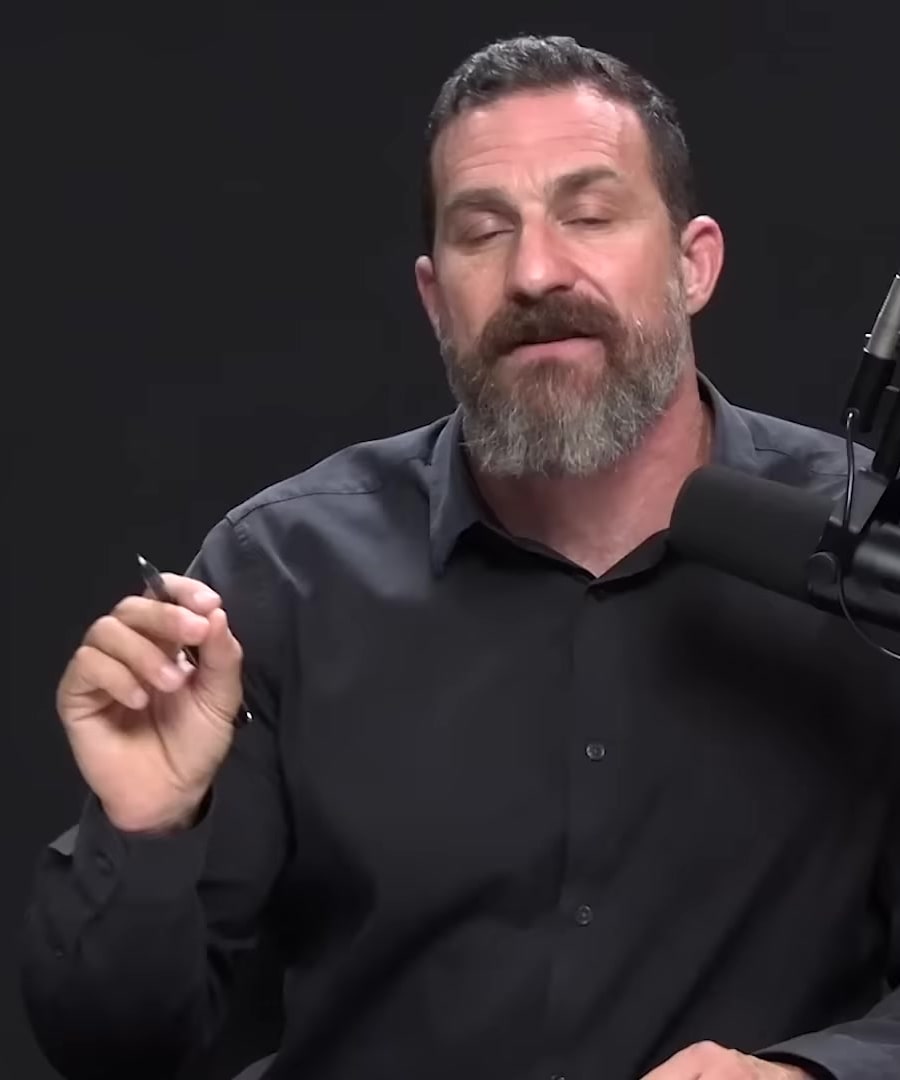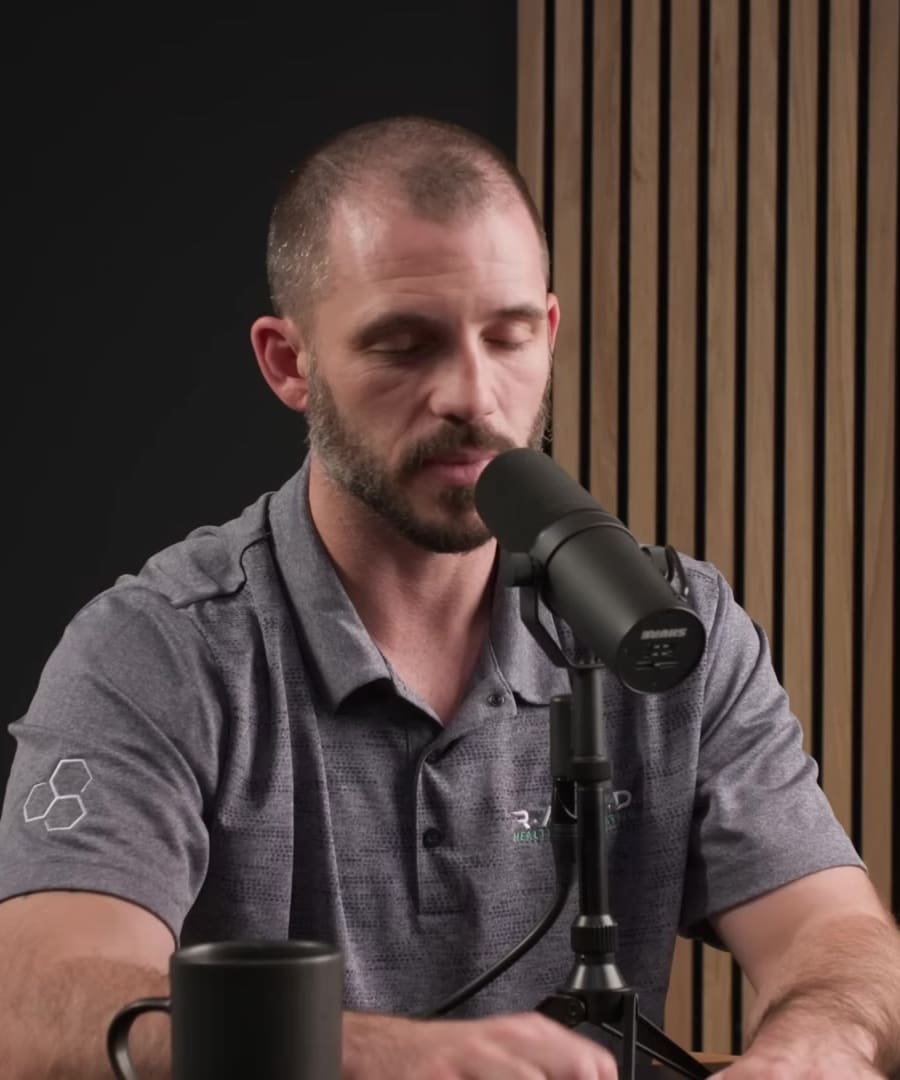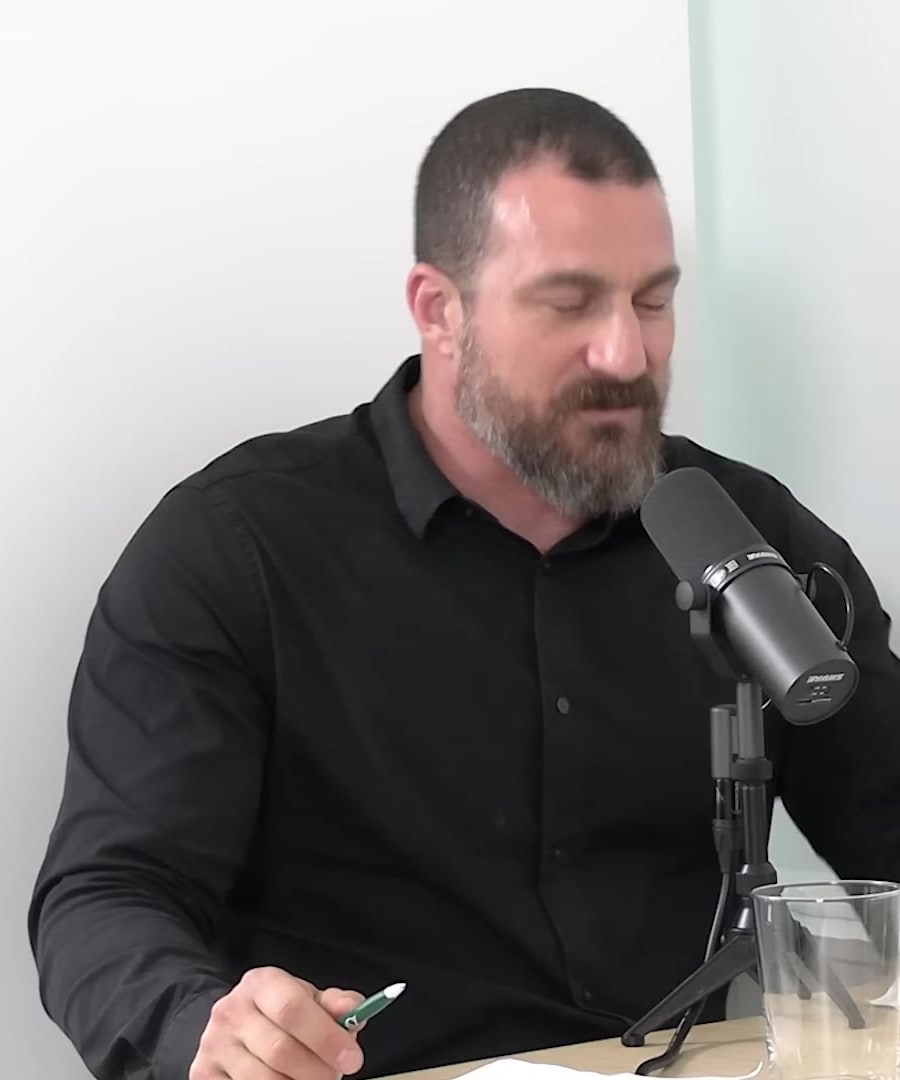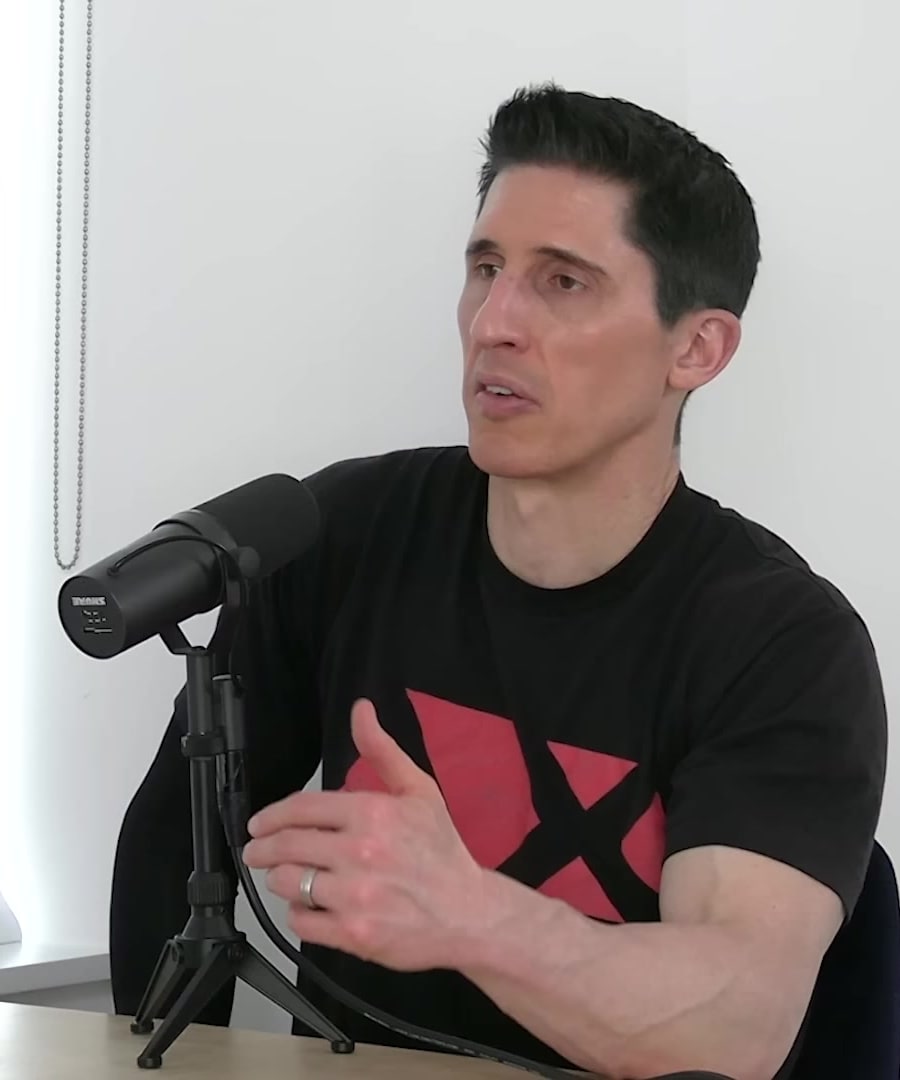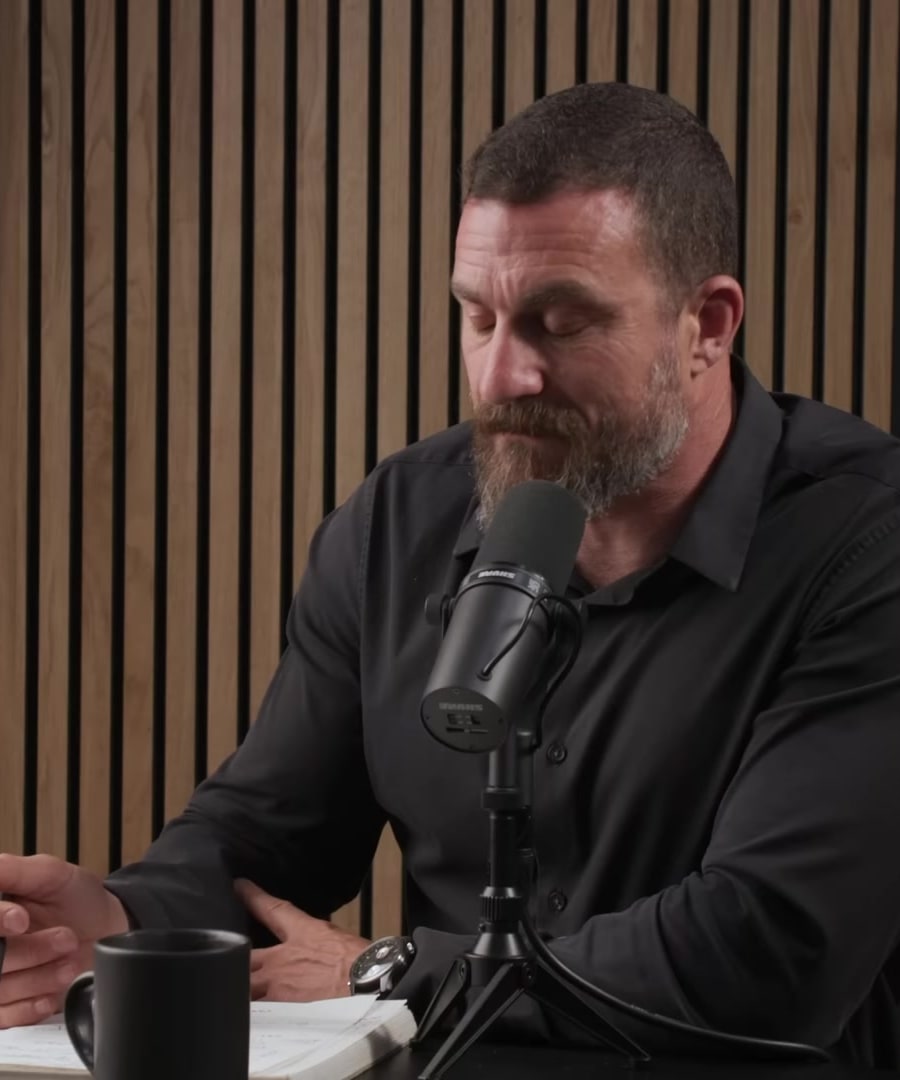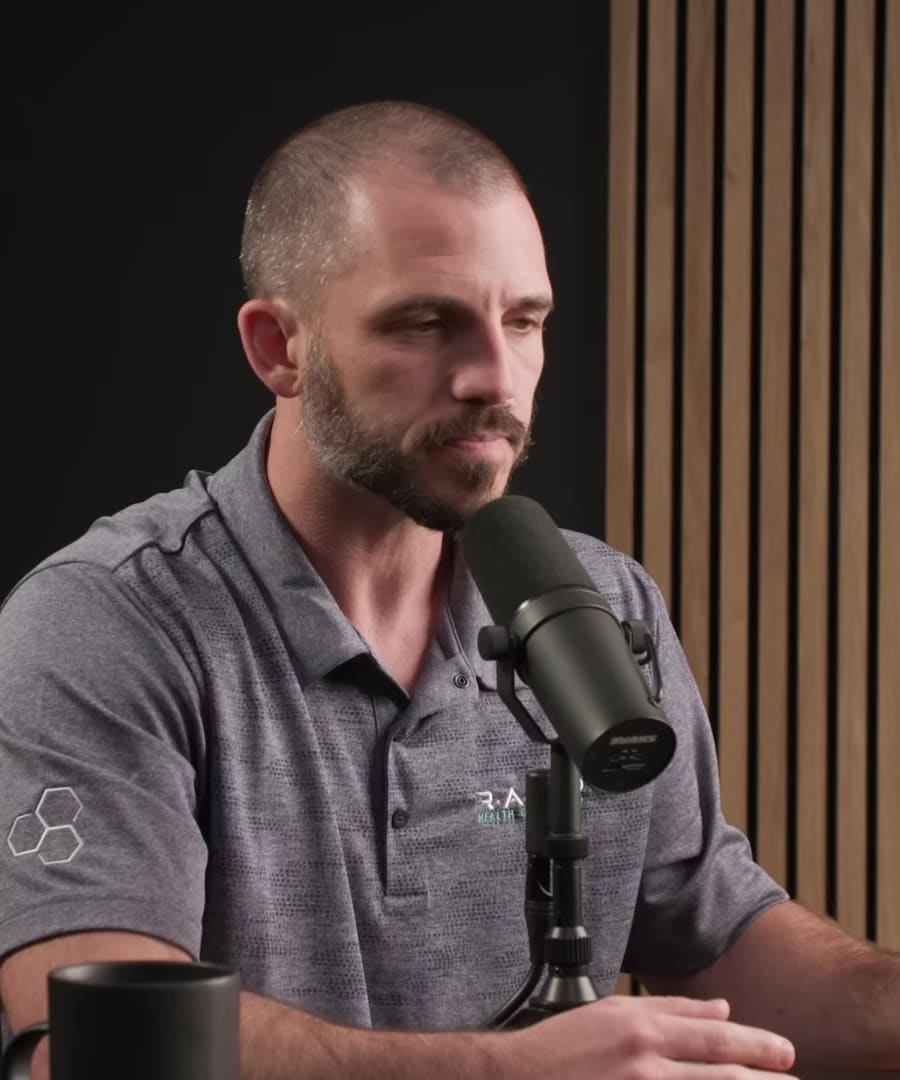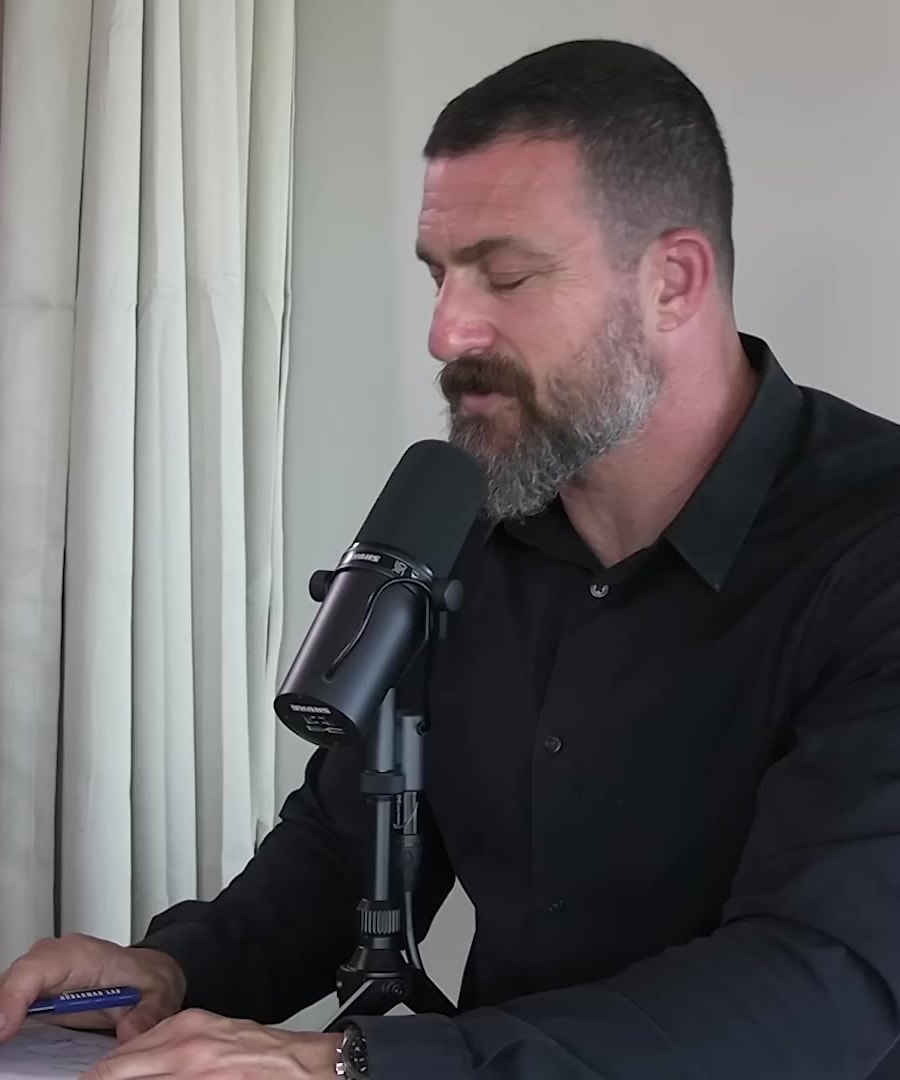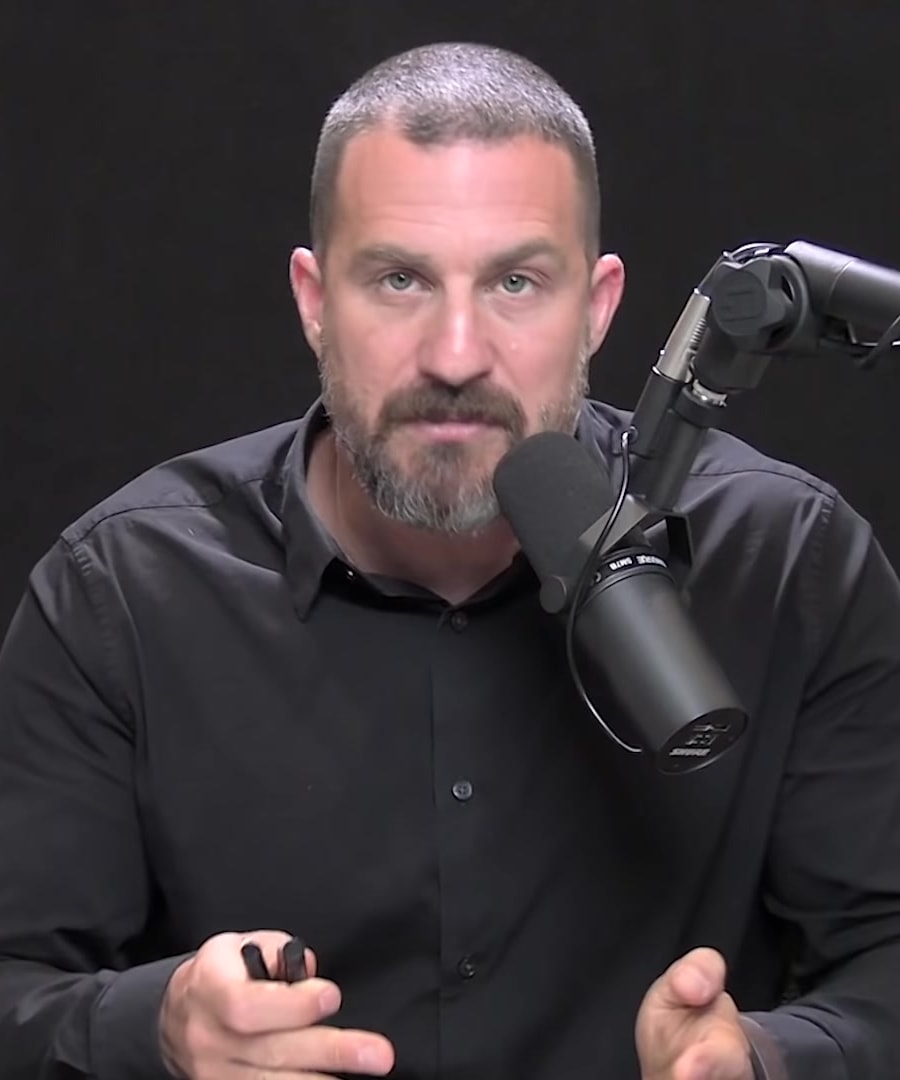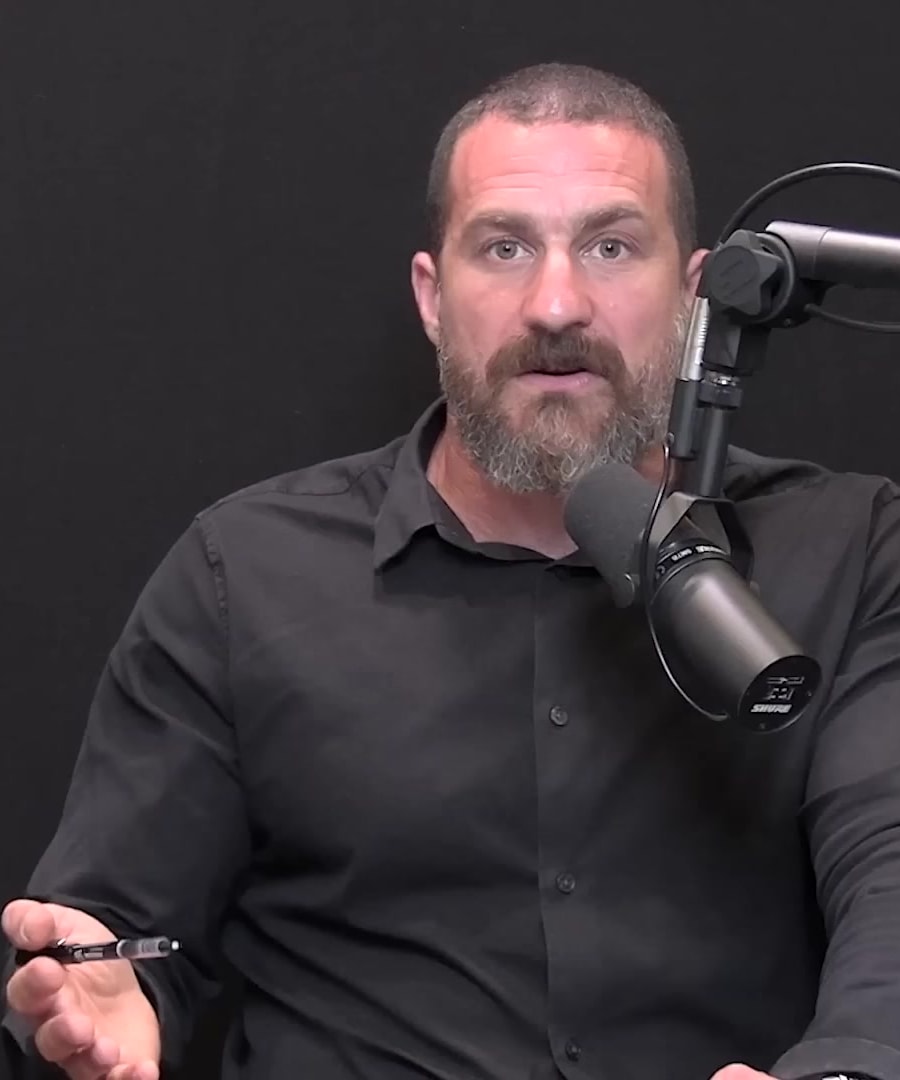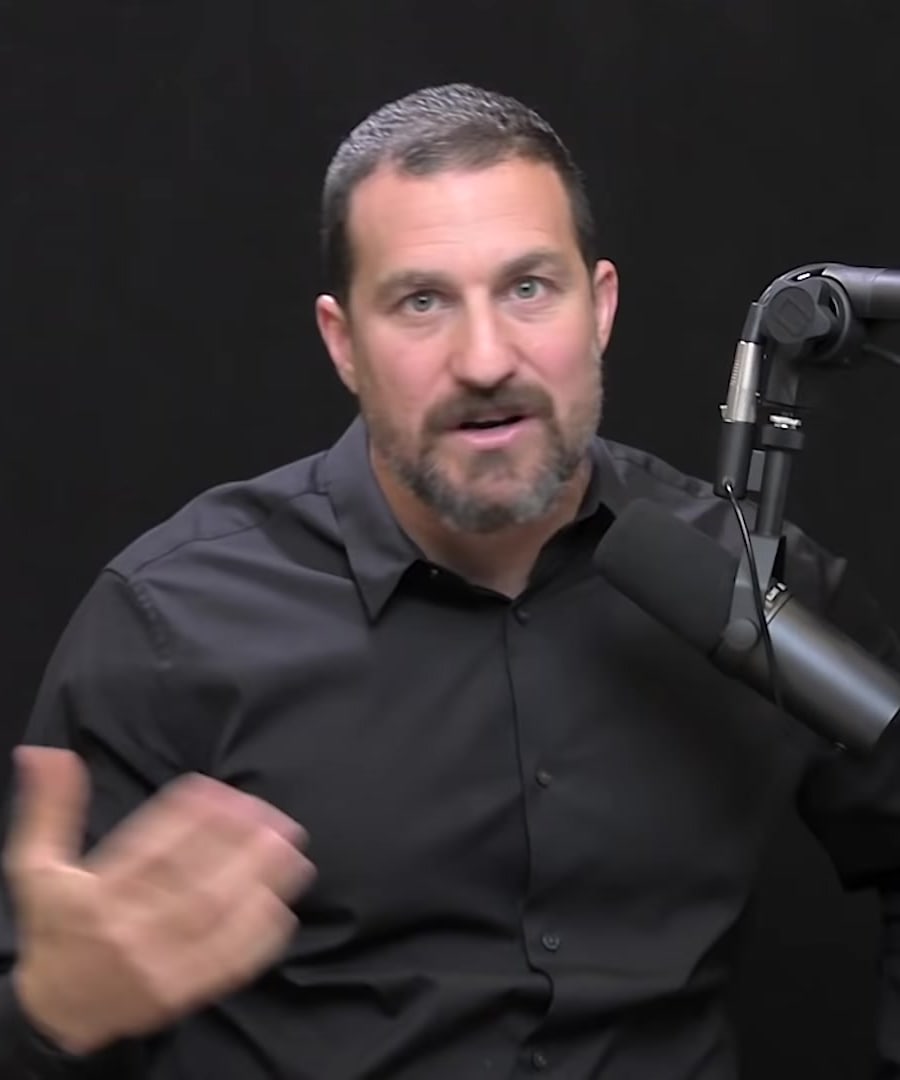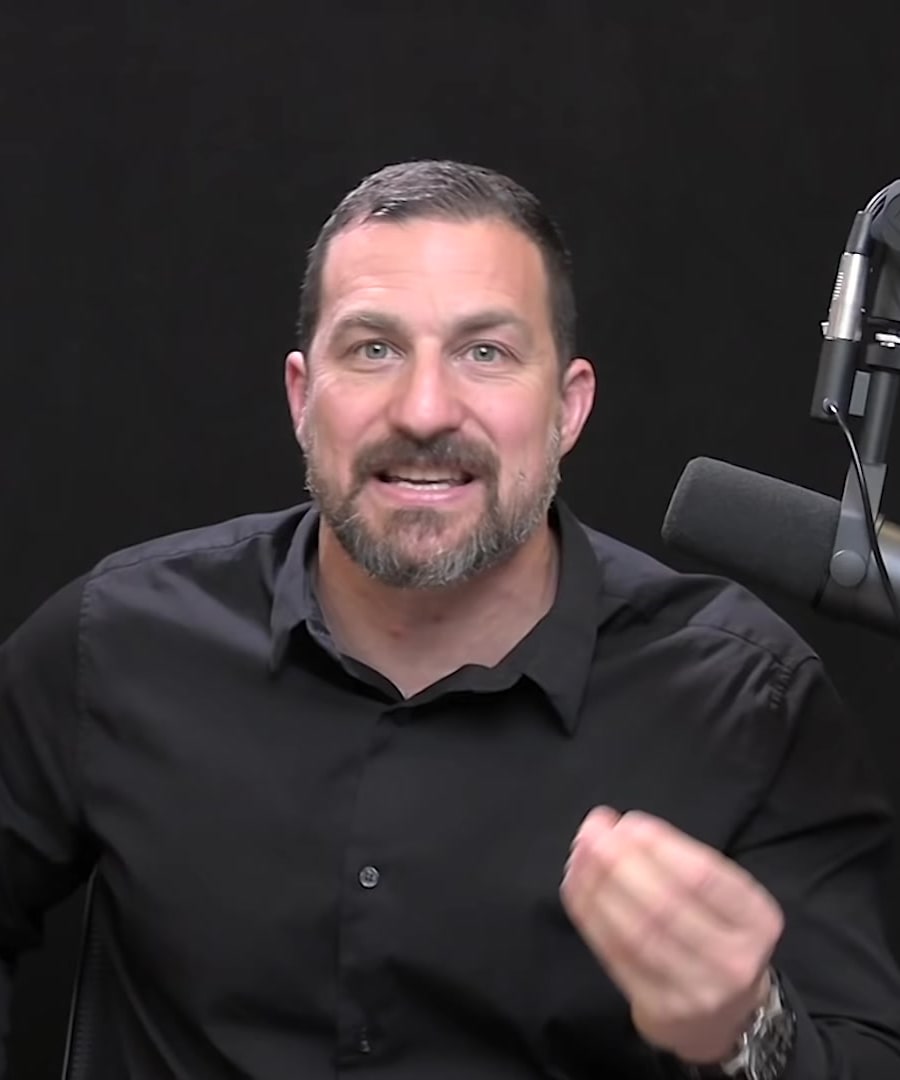What to eat after a workout?
Sources:
In the context of post-workout nutrition, discusses the importance of consuming carbohydrates and proteins after exercising to replenish the body's energy reserves and support recovery. He mentions beneficial foods to eat after a workout, such as oatmeal, fruit, and a protein drink, or a rich, real meal like grass-fed beef or salmon with a salad. This gives the necessary nutrients to recharge the body and if the workout has been intense and glycogen-depleting, he emphasizes the need for complex carbohydrates, such as rice or pasta, to refill glycogen stores. also explains that consuming such carbohydrates post-exercise can help reduce inflammation markers by about 30% to 40% when compared to just water intake 1 2.
adds to the discussion by advising the intake of approximately half a gram of carbohydrate per pound of body weight for high-energy expenditure workouts. He also notes that overall protein ingestion throughout the day is a crucial determinant for muscle growth rather than just timing around the workout, although the timing of carbohydrate ingestion can be more critical, especially for those training multiple times a day or every day 3.
and also highlight that while the urgency of the post-workout meal is less significant than previously believed, consistency in post-workout nutrition aids overall performance. They debunk the myth of an "anabolic window" and agree that the benefits of a post-workout meal can still be observed several hours after exercise 4.
For a balanced approach, it's recommended to include both protein and carbohydrates in post-training meals and to consider personal preferences and how certain foods affect your workout and recovery 5.
RELATED QUESTIONSCould you provide more details on post-workout nutrition?
Sources:
Here are more details concerning post-workout nutrition as discussed on the by and other experts:
-
Protein Intake: Protein is essential for muscle repair and hypertrophy after a workout. mentions that the body can only assimilate a certain amount of protein at each meal, suggesting the importance of spreading protein intake throughout the day. A range of 1.6 to 2.7 grams of protein per kilogram of body weight is highlighted as optimal for muscle growth 1.
-
Post-Workout Nutrients: For recovery purposes, recommends a post-workout intake of about half a gram of carbohydrate per pound of body weight for high-energy expenditure workouts, with about half that amount in protein. This helps replenish muscle glycogen and supports muscle repair and growth 2.
-
Timing:
- The anabolic window concept has been debunked; the body can still benefit from post-workout nutrients several hours after the workout. This broader window allows for schedule flexibility and the continuity of habit in post-training eating for fuel replenishment and overall performance 3.
- also notes the significance of carbohydrate timing, as immediate intake post-exercise is more critical if you're training multiple times a day or every day due to the need to restore muscle glycogen levels promptly 2.
-
Nutrient Ratios: Nutrient ratios post-exercise are important and depend on the type of workout. For strength workouts, a one-to-one ratio of protein to carbohydrates might be optimal, shifting to a three-to-four to one ratio of carbohydrates to protein for hard conditioning workouts. Good nutrition should surround the workouts to maximize potential growth and kickstart recovery processes 4.
-
Carbohydrates and Recovery: notes the benefits of consuming carbohydrates after exercising. Ingesting components like rice, oatmeal, pasta, or fruit can help reduce markers of inflammation by about 30% to 40% compared to just water intake 5.
-
Individual Preferences: The specifics of what to consume before or after a workout come down to personal preference. Find what works best for your digestion and energy levels. Avoid consuming anything right before a workout that could negatively impact your workout performance 6.
It's important to adjust post-workout nutrition based on the type and intensity of exercise, individual nutritional needs, and personal preferences. Consulting with a qualified nutritionist or dietitian can provide personalized guidance tailored to one's goals and lifestyle.
RELATED QUESTIONS-
How much to eat in post exercise meal?
Sources:
As explained on the , the previously popular concept of an anabolic window—where one needed to consume a post-exercise meal within 1 to 2 hours—has been debunked. It's now understood that the body can utilize nutrients for recovery over a much larger duration, potentially up to 3 to 4 hours, or even 5 hours after training. and discussed that regardless of a specific timing window, the habit of consuming a post-workout meal plays an important role in refueling and recovery, emphasizing the overall consistency of having meals around the workout to support one's efforts 1.
However, they didn't specify an exact amount to eat post-exercise. This can vary widely based on factors such as:
- The intensity and type of exercise performed
- The individual's body weight, metabolism, and fitness goals
- If the individual is training multiple times a day or every day, the necessity to quickly replenish glycogen may dictate more precise or increased nutrient intake
For personalized guidance on the amount to eat post-exercise to match your activities and goals, consulting with a nutritionist or other health professional would be beneficial.
RELATED QUESTIONSCan you give examples of post-workout meals?
Sources:
The discusses various aspects of post-workout nutrition but does not provide a comprehensive list of specific meal examples. and his guests focus more on the general principles and macro ratios that play a role in effective post-training nutrition, such as the timing of protein and carbohydrate intake 1 and the importance of fueling workouts with an appropriate amount of these macronutrients 2.
For example, recommends for high intensity workouts, half a gram of carbohydrate per pound of body weight and about half of that amount in protein. So, if someone weighs 200 pounds, they would aim for roughly 100 grams of carbohydrates and 50 grams of protein, either before, during, or after the workout to support energy needs and recovery 2.
In terms of meal composition, while no specific meals are detailed in the cited clips, given the discussed ratios, examples could include:
- A lean chicken breast (high in protein) with a serving of brown rice or quinoa (sources of carbohydrates)
- A protein shake blended with fruits such as bananas or berries (carbohydrates) post-workout
- Greek yogurt with honey and granola or oats
- A turkey and avocado sandwich on whole grain bread
The key is to pair a good source of protein with a form of carbohydrate to help fuel the body post-exercise. Remember to adjust portions based on your own dietary needs, workout intensity, and goals.
RELATED QUESTIONSHow to stop wanting go to bed all the time?
Sources:
To combat the constant desire to go to bed, you might consider several strategies:
-
Exercise Regularly: Engage in regular physical activity, which can boost energy levels and reduce fatigue. It's also important not to overdo it; finishing a workout with some energy left can help you feel better throughout the day 1.
-
Manage Stress: Consider using stress management techniques, as high levels of stress can contribute to feelings of fatigue. Examples include exercise, mindfulness, or relaxation practices.
-
Stay Hydrated: Ensure you are well-hydrated, as dehydration can cause tiredness.
-
Nutrition and Meal Size: Pay attention to the volume and content of your meals. Overeating or high carbohydrate intake can contribute to lethargy 2. Opt for balanced meals with adequate protein and healthy fats.
-
Morning Sunlight Exposure: Get sunlight exposure in the morning. This helps regulate your circadian rhythm, making you more alert during the day and improving sleep quality at night 3.
-
Reduce Blue Light Exposure: Limit exposure to screens, especially before bedtime, to prevent disruption of your sleep-wake cycle.
-
Regulate Sleep Patterns: Maintain a consistent sleep schedule and create a relaxing bedtime routine to improve sleep quality. Be mindful of napping; short naps can be refreshing, but long ones may disrupt nighttime sleep 4.
-
Evaluating Lifestyle Factors: Reflect on your current lifestyle and see if there are habits or substances that could be affecting your energy levels. For example, excessive caffeine intake can disrupt sleep and lead to next-day fatigue.
-
Mind Your Eye Activity: Interestingly, reducing the frequency of your blinking can help maintain mental focus and alertness since more frequent blinking can signal tiredness to the brain 5.
If these self-care strategies do not improve your energy levels, consider consulting a healthcare provider to rule out any underlying medical conditions that might cause excessive tiredness.
RELATED QUESTIONS-
What to eat after a workout?
- RELATED QUESTIONS
Could you provide more details on post-workout nutrition?
- RELATED QUESTIONS
How much to eat in post exercise meal?
- RELATED QUESTIONS
Can you give examples of post-workout meals?
- RELATED QUESTIONS
How to stop wanting go to bed all the time?
- RELATED QUESTIONS

